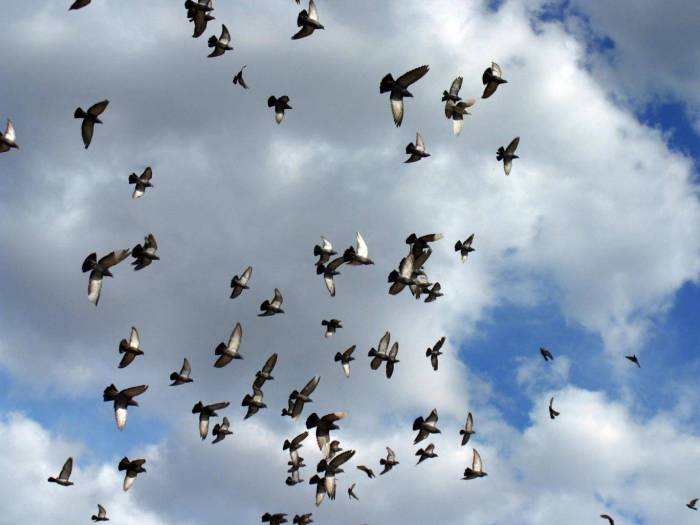These results from a massive “DNA barcoding” study will come as a surprise to anyone who thinks of themselves as truly unique, or who places great store by differences between groups.
The typical genetic distinctions within a species, including humans, is one in 1,000 of the "letters" that make up a DNA sequence.
"Culture, life experience and other things can make people very different but in terms of basic biology, we're like the birds,” said Dr Mark Stoeckl from the University of Basel, who co-led the study.
"By determining the genetic variety within species of the animal kingdom, made possible only recently by the burgeoning number of DNA sequences, we've documented the absence of human exceptionalism."
Dr Stoeckl and his colleagues made use of a database containing over five million genetic barcodes from more than 100,000 animal species, assembled by scientists worldwide over the past 15 years.
They looked specifically at mitochondrial sequences – pieces of DNA found in the mitochondria, which are tiny structures providing cells with power.
"If a Martian landed on Earth and met a flock of pigeons and a crowd of humans, one would not seem more diverse than the other according to the basic measure of mitochondrial DNA," said Jesse Ausubel, director of the program for the human environment at The Rockefeller University.
In a paper published in the journal Human Evolution, the researchers concluded that in fact there is very little genetic diversity within most animal species, and very clear genetic distinctions between species.
"One might have thought that, due to their high population numbers and wide geographic distribution, humans might have led to greater genetic diversity than other animal species," said Dr David Thaler of the University of Basel.
"At least for mitochondrial DNA, humans turn out to be low to average in genetic diversity."
Scientists have suggested that low genetic variation within humans is the result of us all arising from a relatively recent expansion from a small population that quickly spread around the world.
The new research suggests that similarly low variation is seen in most other animals as well, suggesting the same kind of phenomenon has likely shaped the genetics of other species. Most creatures, the scientists said, are relatively “young”.
Around 99 per cent of animals that have ever lived are now extinct, and the researchers argued this relentless pace of extinction keeps culling species, while evolution drives constant change.
"Life is fragile, susceptible to reductions in population from ice ages and other forms of environmental change, infections, predation, competition from other species and for limited resources, and interactions among these forces," said Dr Thaler.
"The similar sequence variation in many species suggests that all of animal life experiences pulses of growth and stasis or near extinction on similar time scales."
"At a time when humans place so much emphasis on individual and group differences, maybe we should spend more time on the ways in which we resemble one another and the rest of the animal kingdom,” said Mr Ausubel.
The Independent
More about: science
















































